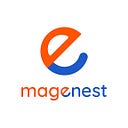Shopify B2B Examples: Best Practices and Pricing Insights
B2B models present a distinct landscape compared to their B2C counterparts. B2B transactions involve manufacturers, wholesalers, and retailers, operating primarily in a business-to-business context, rather than directly selling products to consumers. The B2B commerce industry is a behemoth, with nearly $12 trillion at stake, and its nuanced experience is irreplaceable. For B2B businesses, a robust online presence is key to reaching potential clients and driving sales. Shopify, a prominent eCommerce platform, equips B2B enterprises with a wide array of features and tools to set up online stores, efficiently manage inventory, process orders, and more. In this article, we delve into a selection of exemplary Shopify B2B business examples, shedding light on their best practices and pricing strategies to guide you in your own endeavors.
Demystifying Shopify B2B eCommerce
Business-to-business (B2B) commerce pertains to the direct exchange of products and services between two business entities. This model diverges significantly from business-to-consumer (B2C) transactions, where businesses sell directly to individual consumers. B2B eCommerce orchestrates transactions between manufacturers and wholesalers or wholesalers and retailers, all facilitated through digital sales channels.
The B2B eCommerce realm stands as one of the fastest-growing sales sectors, with the global B2B eCommerce market estimated to be valued at over $12 trillion. This phenomenal growth is attributed to the innovation and technology infused into B2B eCommerce platforms. Traditional B2B business models relied on labor-intensive, manual sales, and marketing processes. However, digital commerce has emerged as a game-changer, enabling businesses to streamline operations, reduce costs, and enhance efficiency through eCommerce automation.
B2B sellers collaborate with a diverse range of entities, including wholesalers, large retailers, educational institutions, nonprofits, and resellers. This digital transformation serves as a unifying platform where buyers and sellers converge, enabling them to place and manage orders with the ease of mobile accessibility. It also opens up new opportunities for businesses to establish connections with distributors and suppliers.
The inevitability of technology applications and digital transformation has dramatically reshaped the B2B market. The emergence and progression of the Shopify platform have accelerated this transformation. Shopify B2B eCommerce represents a new business model where enterprises harness the Shopify platform to offer products or services to fellow businesses. This model empowers B2B entities to establish online stores, efficiently manage inventory, process orders, and undertake various other crucial functions.
Shopify B2B eCommerce introduces several key advantages, including:
- Streamlined sales processes
- Reduced infrastructure and overhead costs
- Minimized intermediaries
- The potential to reach a broad market at scale
- A continuous, omnichannel branded presence
- Enhanced partner relationships
- Elevated employee productivity
Top 10 Noteworthy Shopify B2B Examples
Microfiber Wholesale
Microfiber Wholesale is a B2B eCommerce enterprise that specializes in the sale of microfiber cleaning products, encompassing towels, mops, cleaning kits, and customized cleaning supplies. Despite operating in the B2B sphere, their website boasts a B2C-like appearance, complete with features such as a free shipping and returns notification bar, a toll-free customer service hotline, endorsements from cleaning professionals, and an array of informative articles.
The Microfiber Wholesale website is designed to be self-service, offering customers all the essential information needed to facilitate direct purchases through the site. Product pages, for instance, incorporate charts, color options, dimensions, quantity-based discounts, item identification numbers, real-time availability indicators, and a prominently featured “Add to Cart” button.
Another distinctive feature of Microfiber Wholesale’s Shopify store is its ability to provide personalized product recommendations to customers. Leveraging data analytics and machine learning, they scrutinize customer purchase histories to deliver tailored product recommendations based on individual preferences and past behavior.
Microfiber Wholesale extends a variety of payment options to its clientele, encompassing credit card payments, PayPal, and the flexibility of purchase orders. This payment versatility ensures that businesses can choose the method that aligns best with their unique requirements.
With an arsenal of over 100 instructive videos and articles, coupled with a steadfast commitment to optimizing the user experience, Microfiber Wholesale underscores its dedication to simplifying the process of finding essential information and making informed purchasing decisions.
Read more on other examples, best practices and pricing: https://magenest.com/en/shopify-b2b-examples/
